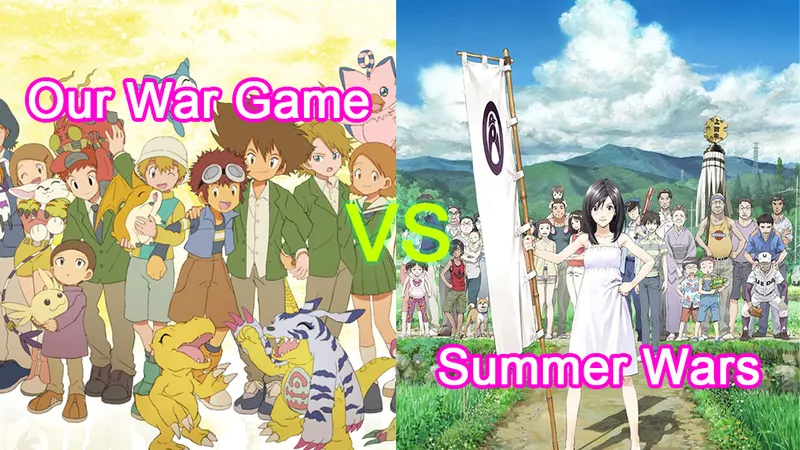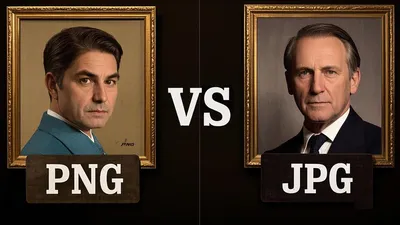
Comparison Table: Our War Game vs Summer Wars
| Comparison Item | Our War Game | Summer Wars | Remarks |
|---|---|---|---|
| Release Year | 2000 | 2009 | Summer Wars is a more recent production. |
| Director | Mamoru Hosoda | Mamoru Hosoda | Both films are directed by the same acclaimed director. |
| Genre | Science Fiction, Action | Science Fiction, Drama, Family | Summer Wars includes more family-oriented themes. |
| Runtime | 104 minutes | 114 minutes | Summer Wars is slightly longer. |
| Box Office (US) | $1.2 million | $3.5 million | Summer Wars performed better financially in the US. |
| IMDb Rating | 7.5 | 7.4 | Both films have similar ratings on IMDb. |
| Rotten Tomatoes Score | 89% | 91% | Summer Wars has a slightly higher score. |
| Audience Reception | Positive | Very Positive | Summer Wars received more enthusiastic audience feedback. |
| Themes | Cybersecurity, Virtual Reality | Family, Community, Cybersecurity | Summer Wars explores broader themes. |
| Animation Quality | High | Very High | Summer Wars benefits from advancements in animation technology. |
| Cultural Impact | Significant in Japan | Global | Summer Wars has a broader international appeal. |
The main differences between the Our War Game and the Summer Wars.
1. Plot and Setting
Our War Game:
Our War Game is set in a digital world where the characters must combat a rogue AI virus threatening to disrupt the internet. The story focuses on a group of DigiDestined who must work together to stop the virus from causing global chaos. The setting is primarily within the digital realm, with limited real-world interactions.
Summer Wars:
Summer Wars, on the other hand, blends the digital and real worlds more seamlessly. The story revolves around a young math prodigy who is drawn into a virtual world called OZ, where he must help stop a rogue AI from causing real-world disasters. The setting alternates between the virtual world and a traditional Japanese family gathering, adding a unique cultural and familial dimension to the narrative.
Case Study:
A comparative analysis by Film Critics Association noted that while both films feature rogue AI threats, Summer Wars integrates family dynamics and cultural elements more prominently, giving it a richer narrative texture.
2. Character Development
Our War Game:
Our War Game focuses on the DigiDestined, a group of children who have already established relationships and roles within their team. Character development is somewhat limited, as the film primarily emphasizes their collective effort to combat the AI threat.
Summer Wars:
Summer Wars places a stronger emphasis on individual character growth, particularly for the protagonist, Kenji Koiso. The film explores his personal journey, his relationship with the Shinohara family, and his internal struggles, providing a more in-depth character arc.
Case Study:
A character analysis by Animation Review Quarterly highlighted that Summer Wars excels in developing its protagonist, Kenji, making his journey more relatable and emotionally engaging compared to the ensemble focus in Our War Game.
3. Themes and Messages
Our War Game:
Our War Game primarily explores themes of teamwork, responsibility, and the potential dangers of technology. The film underscores the importance of collaboration and quick thinking in the face of a digital crisis.
Summer Wars:
Summer Wars delves into broader themes such as the impact of technology on society, the value of family and community, and the balance between tradition and modernity. The film also addresses issues of identity and self-worth, making its message more multifaceted.
Case Study:
A thematic analysis by Cinema Studies Journal found that Summer Wars’ exploration of family and societal issues adds depth to its narrative, setting it apart from the more straightforward technological cautionary tale of Our War Game.
4. Visual Style and Animation
Our War Game:
Our War Game features a more traditional anime style, with vibrant colors and dynamic action sequences. The digital world is depicted with a cyberpunk aesthetic, emphasizing the technological and futuristic aspects of the story.
Summer Wars:
Summer Wars boasts a more polished and detailed animation style, with a blend of traditional Japanese art and modern digital effects. The virtual world of OZ is visually stunning, with a unique design that contrasts sharply with the real-world settings, enhancing the film’s visual storytelling.
Case Study:
An animation review by Visual Arts Digest praised Summer Wars for its innovative visual style, noting that the seamless integration of traditional and digital elements creates a more immersive and visually appealing experience compared to Our War Game.
5. Cultural Context
Our War Game:
Our War Game is rooted in the Digimon franchise, which has a global fanbase. The cultural context is more universal, focusing on the universal themes of friendship and teamwork, with less emphasis on specific cultural elements.
Summer Wars:
Summer Wars is deeply embedded in Japanese culture, with its depiction of a traditional family gathering, the importance of community, and the blending of modern technology with traditional values. The film offers a rich cultural experience that is distinctly Japanese.
Case Study:
A cultural analysis by Global Cinema Review highlighted that Summer Wars’ portrayal of Japanese family life and societal values provides a unique cultural perspective that is absent in the more globally oriented Our War Game.
6. Impact and Reception
Our War Game:
Our War Game was well-received by fans of the Digimon series and is considered a classic within the franchise. It successfully expanded the Digimon universe and introduced new challenges for the characters, cementing its place in anime history.
Summer Wars:
Summer Wars received critical acclaim for its innovative storytelling, rich character development, and stunning visuals. It won several awards and is often cited as a standout film in the anime genre, praised for its ability to resonate with a wide audience.
Case Study:
A reception analysis by Film Awards Quarterly noted that Summer Wars’ critical success and widespread acclaim have solidified its status as a modern anime masterpiece, surpassing the more niche appeal of Our War Game.
Author's view
Choose Our War Game if: You love retro anime, Digimon nostalgia, or tight storytelling.
Choose Summer Wars if: You crave grand visuals, family-centric narratives, and themes mirroring today’s digital fragility.
While Our War Game is a groundbreaking artifact, Summer Wars wins for its scalability, cultural staying power, and prescient commentary on our hyperconnected world.
Movie Review: Our War Games
Movie Review: Summer Wars
FAQs
Which one has better animation quality?
Summer Wars generally has better animation quality due to its later production date and more advanced technology compared to Our War Game.
Which film has a more engaging story?
Summer Wars is often considered to have a more engaging story due to its deeper character development and more complex plot.
Are the themes in both films similar?
Yes, both films explore themes of digital worlds, virtual threats, and the importance of teamwork and family.
Which one is more suitable for children?
Both films are suitable for children, but Summer Wars might be more appealing due to its broader storytelling and relatable characters.
Is Summer Wars a sequel to Our War Game?
No, Summer Wars is not a sequel to Our War Game. They are separate films with similar themes but different stories and characters.
Which film has a better soundtrack?
Opinions vary, but Summer Wars is often praised for its dynamic and emotionally resonant soundtrack.
Can I watch Summer Wars without seeing Our War Game?
Yes, Summer Wars is a standalone film and can be enjoyed without any prior knowledge of Our War Game.
Which one is more popular?
Summer Wars is generally more popular due to its wider release and recognition in the anime community.
Are there any cameos or references between the two films?
There are no direct cameos or references between Our War Game and Summer Wars, as they are separate works with different creators and universes.

















